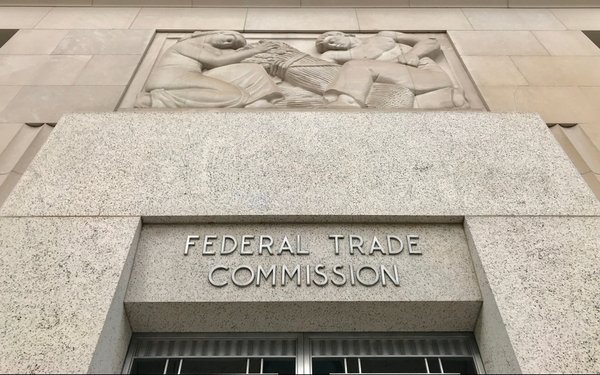
The Federal Trade Commission on Monday demanded detailed information
from nine web companies -- including Facebook, Amazon, Twitter and YouTube -- about how they gather data about consumers and personalize ads, as part of a broad investigation into “dangerously
opaque” practices.
“Never before has there been an industry capable of surveilling and monetizing so much of our personal lives,” Commissioners Rohit Chopra, Rebecca Kelly
Slaughter and Christine Wilson said in a joint statement about the study.
“Social media and video streaming companies now follow users everywhere through apps on their always-present mobile devices. This constant access allows these firms to monitor where users go,
the people with whom they interact, and what they are doing. But to what end?” the commissioners added. “Too much about the industry remains dangerously opaque.”
advertisement
advertisement
The FTC is
seeking a host of information from the companies
-- including how they track consumers and decide which ads and content to display.
The agency is also questioning the companies about their use of algorithms, efforts to promote engagement,
and how their data practices affect children and teens.
The agency voted 4-1 to issue the orders for information. Other companies receiving the orders are TikTok, Snap, Reddit, Discord and
WhatsApp.
The FTC gave the companies 45 days to respond, but that time frame can be extended.
Commissioner Noah Joshua Phillips dissented from the decision to issue the investigative
orders on the grounds that they are too broad.
The orders represent “an undisciplined foray into a wide variety of topics, some only tangentially related to the stated focus of this
investigation,” he wrote.
“The actions undertaken today trade a real opportunity to use scarce government resources to advance public understanding of consumer data privacy practices -- critical to informing ongoing
policy discussions in the United States and internationally -- for the appearance of action on a litany of gripes with technology companies.”
The investigation comes as the FTC is still
considering whether to revise regulations that implement the Children's Online Privacy Protection Act.
That law generally prohibits website operators from knowingly collecting personal
information -- including web-browsing data used for targeted advertising -- from children under 13, without their parents' consent.
Last year, advocacy groups including the Campaign for
a Commercial-Free Childhood, Center for Digital Democracy and American Academy of Pediatrics urged the agency to gather more information about digital advertising before making a decision about new
children's privacy regulations.
Slaughter signaled in
September that the FTC was considering using its subpoena power to launch an investigation into targeted advertising.
Justin Brookman, director of consumer privacy and technology policy at
Consumer Reports and former policy director of the FTC's Office of Technology Research and Investigation, says investigation could lead to new insight into how tech companies draw on consumer
data.
“There are known unknowns about the things these companies do with your data,” Brookman tells MediaPost.
He adds that the information gleaned by the FTC through the
investigation could inform policy decisions down the road.
Some lawmakers and advocacy groups cheered news of the FTC's investigation.
“Social media platforms and video
streaming services are daily destinations for young people today,” Sen. Ed Markey (D-Massachusetts) stated Monday. “Unfortunately, parents and policymakers alike are in the dark
about how powerful websites and apps are siphoning kids’ and teens’ personal information, profiling users, and raking in profits while children get hooked on their devices.
In May, Markey was among a bipartisan group of lawmakers who urged
the FTC to investigate how media and tech companies -- including those involved in distance learning -- collect and process data about children.
Jeff Chester, executive director of the Center
for Digital Democracy, added in a statement that the FTC was “finally holding the social media and online video giants accountable, by requiring leading companies to reveal how they stealthily
gather and use information that impacts our privacy and autonomy.”